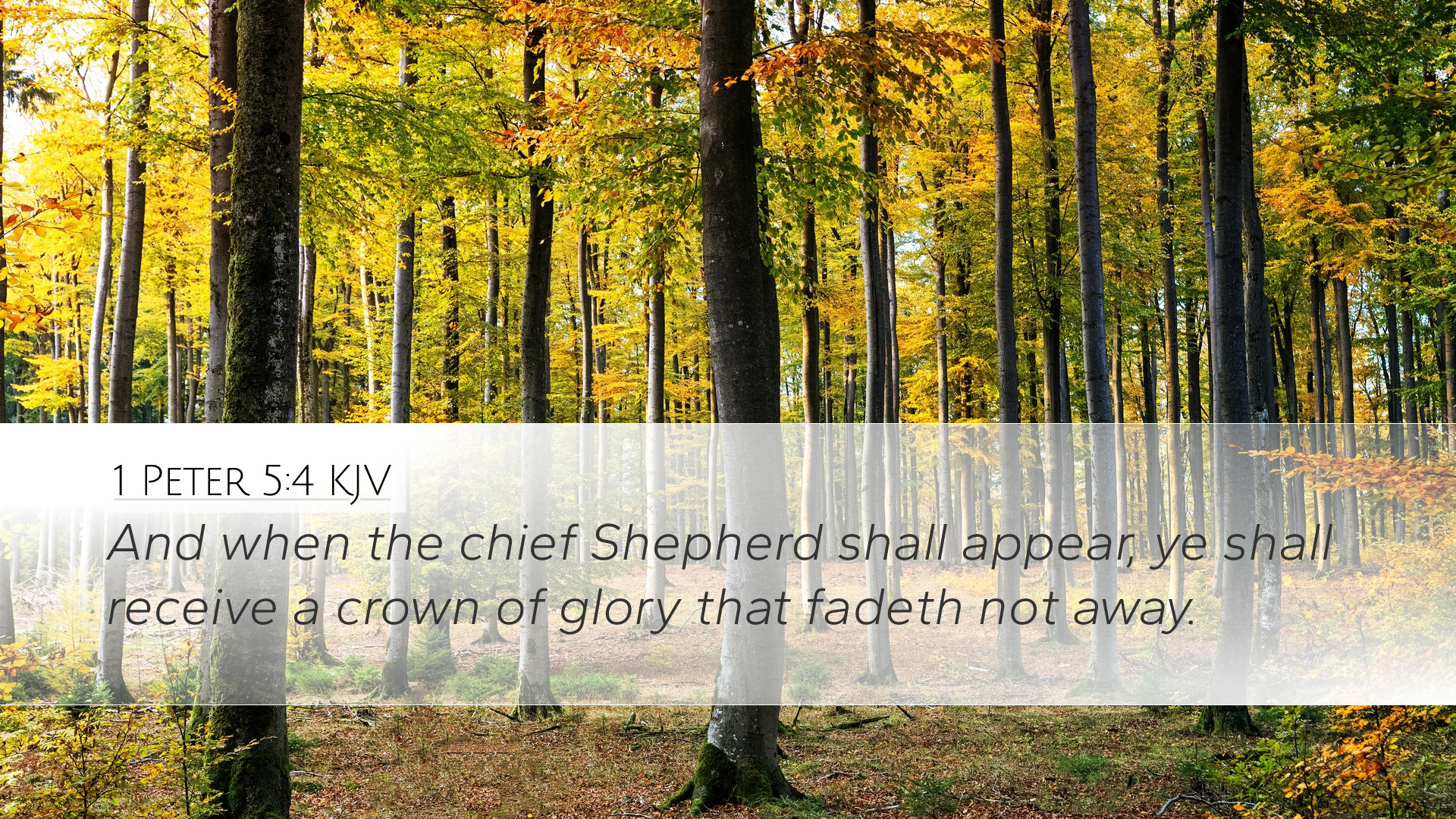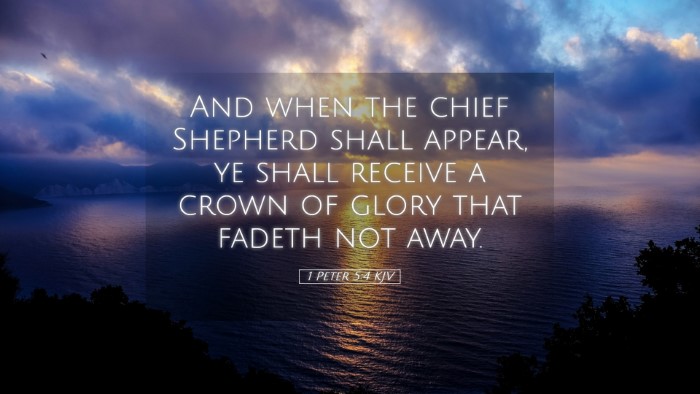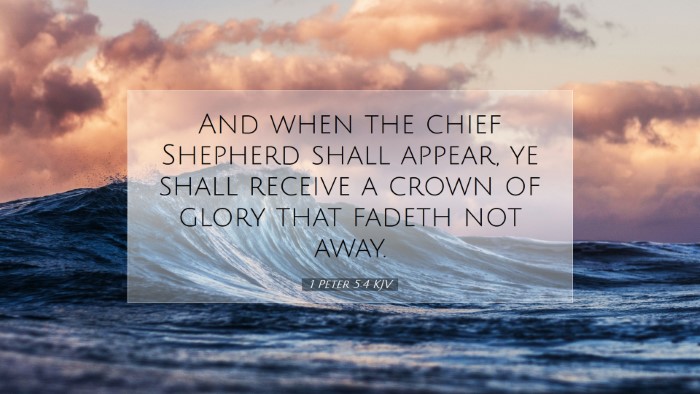Old Testament
Genesis Exodus Leviticus Numbers Deuteronomy Joshua Judges Ruth 1 Samuel 2 Samuel 1 Kings 2 Kings 1 Chronicles 2 Chronicles Ezra Nehemiah Esther Job Psalms Proverbs Ecclesiastes Song of Solomon Isaiah Jeremiah Lamentations Ezekiel Daniel Hosea Joel Amos Obadiah Jonah Micah Nahum Habakkuk Zephaniah Haggai Zechariah Malachi1 Peter 5:4
1 Peter 5:4 KJV
And when the chief Shepherd shall appear, ye shall receive a crown of glory that fadeth not away.
1 Peter 5:4 Bible Commentary
Commentary on 1 Peter 5:4
Verse: "And when the chief Shepherd appears, you will receive the crown of glory that will never fade away." (1 Peter 5:4)
Introduction
In this profound verse from 1 Peter, the Apostle Peter addresses the leaders within the Christian community, emphasizing the significance and responsibilities of pastoral leadership. He contrasts the ephemeral nature of worldly rewards with the eternal glory promised by the Chief Shepherd, Jesus Christ. This commentary blends insights from esteemed public domain authors, including Matthew Henry, Albert Barnes, and Adam Clarke, providing a comprehensive understanding of the text.
Contextual Analysis
Peter writes during a time when the early church faced persecution and trials. He emphasizes the role of elders, urging them to shepherd the flock faithfully. The mention of the "Chief Shepherd" (Christ) and the "crown of glory" highlights the eternal consequences of their ministry.
Leadership's Role
-
Matthew Henry: Henry underscores the pastoral duties and responsibilities, asserting that church leaders are to be examples—a theme echoed throughout Peter's epistle. He notes that a good shepherd must lead with humility and diligence, caring for the spiritual well-being of the congregation.
-
Albert Barnes: Barnes focuses on the importance of being watchful and not lording authority over others. He emphasizes that true leadership in the church is characterized by service, reflecting the model set by Christ who came to serve, not to be served.
-
Adam Clarke: Clarke extends the thought on roles, suggesting that elders are accountable before God for their flock. He posits that their vigilance and care should reflect their awareness of the Chief Shepherd and the day of His appearance.
The Chief Shepherd
The term "Chief Shepherd" holds significant weight in biblical literature.
-
Matthew Henry: He associates Jesus as the ultimate model for shepherding, emphasizing His love, sacrifice, and commitment to the flock. The responsibility of earthly shepherds stems from following Christ's example.
-
Albert Barnes: Barnes highlights that as the Chief Shepherd, Christ will evaluate the work of His under-shepherds. He underscores the comfort found in knowing that all efforts towards true shepherding will be acknowledged by Christ.
-
Adam Clarke: Clarke reiterates the assurance of Jesus’s watchful care over His people, suggesting that this title provides comfort to believers and leaders, knowing their labor is not in vain.
The Crown of Glory
The promise of a "crown of glory" serves as a critical motivating factor for faithful service in ministry.
-
Matthew Henry: Henry emphasizes that this crown symbolizes honor and reward found only in heaven. The fleeting nature of earthly achievements pales in comparison to the divine recognition waiting for faithful servants.
-
Albert Barnes: Barnes describes the "crown of glory" as a metaphor for the eternal rewards awaited by those who faithfully serve in ministry. He contrasts this with earthly rewards, which are temporary and often inadequate.
-
Adam Clarke: Clarke observes that the Greek term for 'crown' (stephanos) signifies a victor's crown, implying that faithful service in the face of trials leads to victory in Jesus. This victory is not just individual but is shared within the community of believers.
Conclusion
1 Peter 5:4 serves as a poignant reminder to church leaders and believers alike, encouraging them to anchor their responsibilities and challenges in the reality of Christ's return and the eternal rewards promised to those who serve faithfully. Through the insights gleaned from historical commentators, it is evident that the principles of humility, vigilance, and service to the flock resonate deeply within this verse, urging both leaders and congregants to remain steadfast in their faith and ministry.


